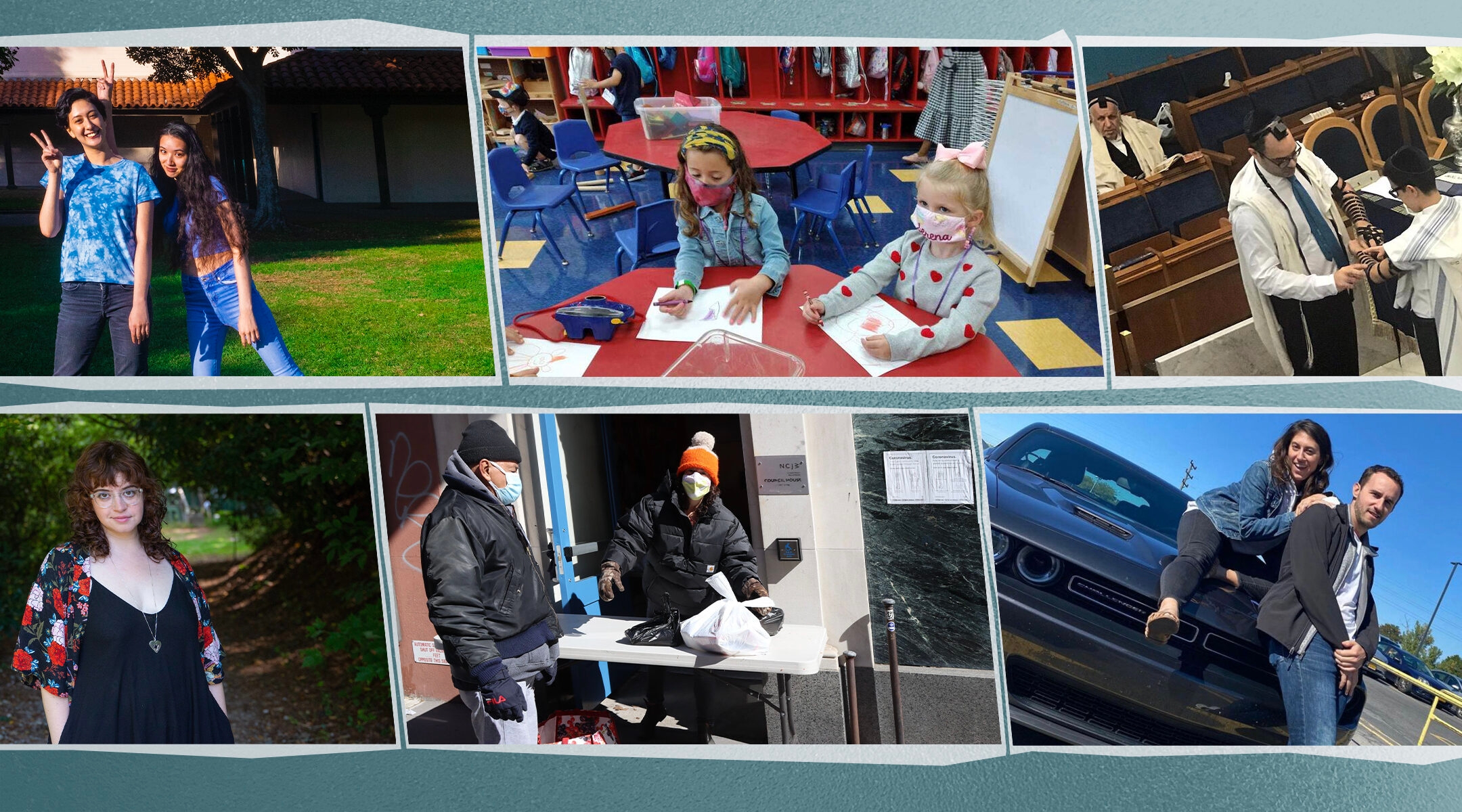(JTA) — One year ago, Carol Ackerman’s father was still alive. Andrea Kopel was trying to figure out how to run a food pantry without volunteers. Sasha Kopp hadn’t yet given up on the city she loved.
They knew that the pandemic had changed the world in major, wrenching ways. But the impact of COVID-19 on their own lives still had yet to become clear.
Earlier this month, when America passed its pandemic anniversary, many reflected on the moments when everything changed. Now, with an end to the crisis coming into view, the Jewish Telegraphic Agency spoke to nine Jews whose lives have been reshaped by the pandemic.
Their stories offer a window into the grief, loss, surprise and, yes, joy that has unfolded over the last year — and an outline of some of the dynamics the Jewish world will have to grapple with on its journey toward a new normal.
An Italian bar mitzvah celebrated one year later

Because of bans on large gatherings, Ruben Golran, an Italian Jewish kid celebrating his bar mitzvah, had to limit the February 2020 ceremony to close relatives. (Courtesy of the Golran family)
Ruben Golran’s 600-person bar mitzvah celebration was scrapped amid Italy’s early surge in February 2020. One year later, he chanted his Torah portion before 200 masked and distanced community members.
His father, Elia Golran: Schools were closed and everything went on Zoom — and the shul and our community. But slowly, slowly, from May until after the [High] Holidays, the situation in Italy was pretty good.
A devastating loss reshapes a family in New York
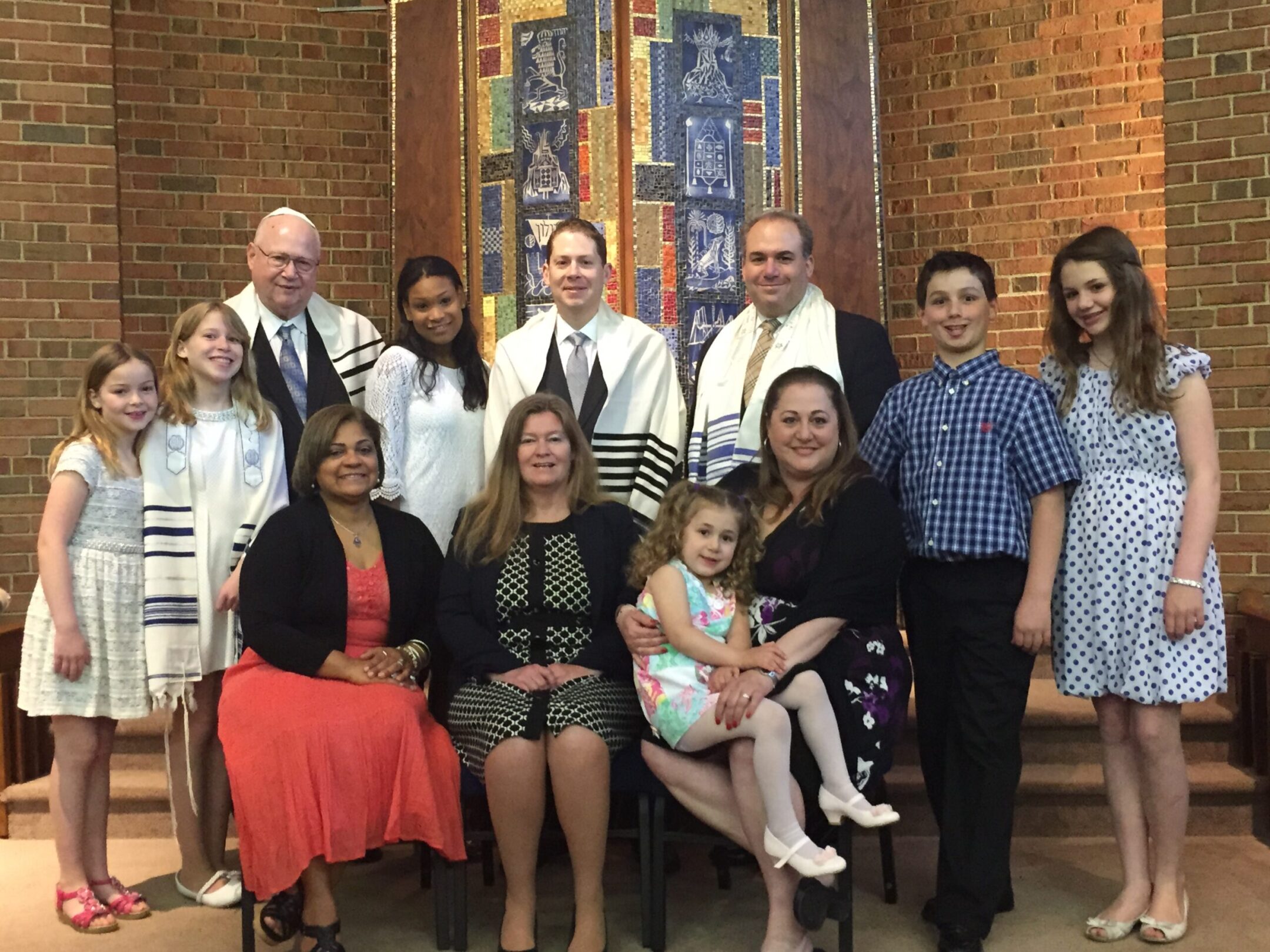
Stanley Teich, back row, left, seen here at a grandchild’s bat mitzvah, died of COVID-19 in April 2020, an early casualty of the pandemic in the United States. (Courtesy of Carol Ackerman)
Stanley Teich was looking forward to taking his family to Israel for Passover to celebrate his birthday. Instead, he was battling COVID-19 in the hospital when he turned 80.
His daughter, Carol Ackerman: We had already booked out all of the travel and the excursions and the highlights we wanted to see. But he decided that it was safer and more prudent to cancel, and we promised we would go in 2021.
A rabbi who shut down early is back in action
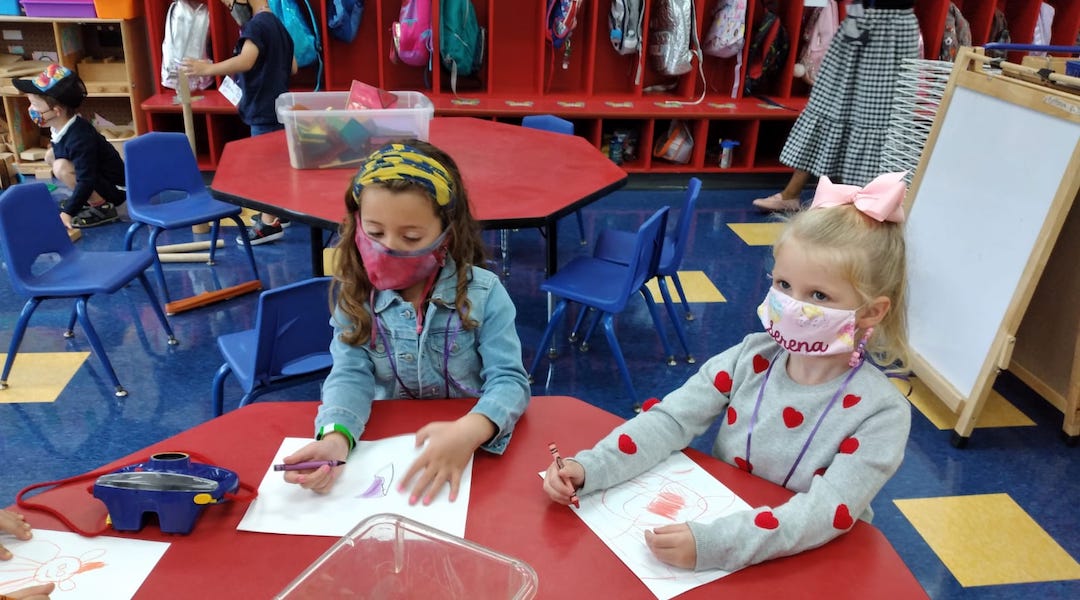
Kindergartners at the Moriah School in Englewood, N.J., one of seven Bergen County schools to urge families to abide by school guidelines outside of school in September 2020. (Courtesy of the Moriah School)
When the Orthodox rabbis of Bergen County, New Jersey, decided on March 11, 2020, to end all in-personal Jewish life under their supervision, their choice was unprecedented — but only for a few days.
Rabbi Kenny Schiowitz: Until we shut down, we were looking to guidance from the CDC, the Department of Health. And then suddenly in one day we became the ones writing the rules.
Missing the hugs of the hungry and the elderly
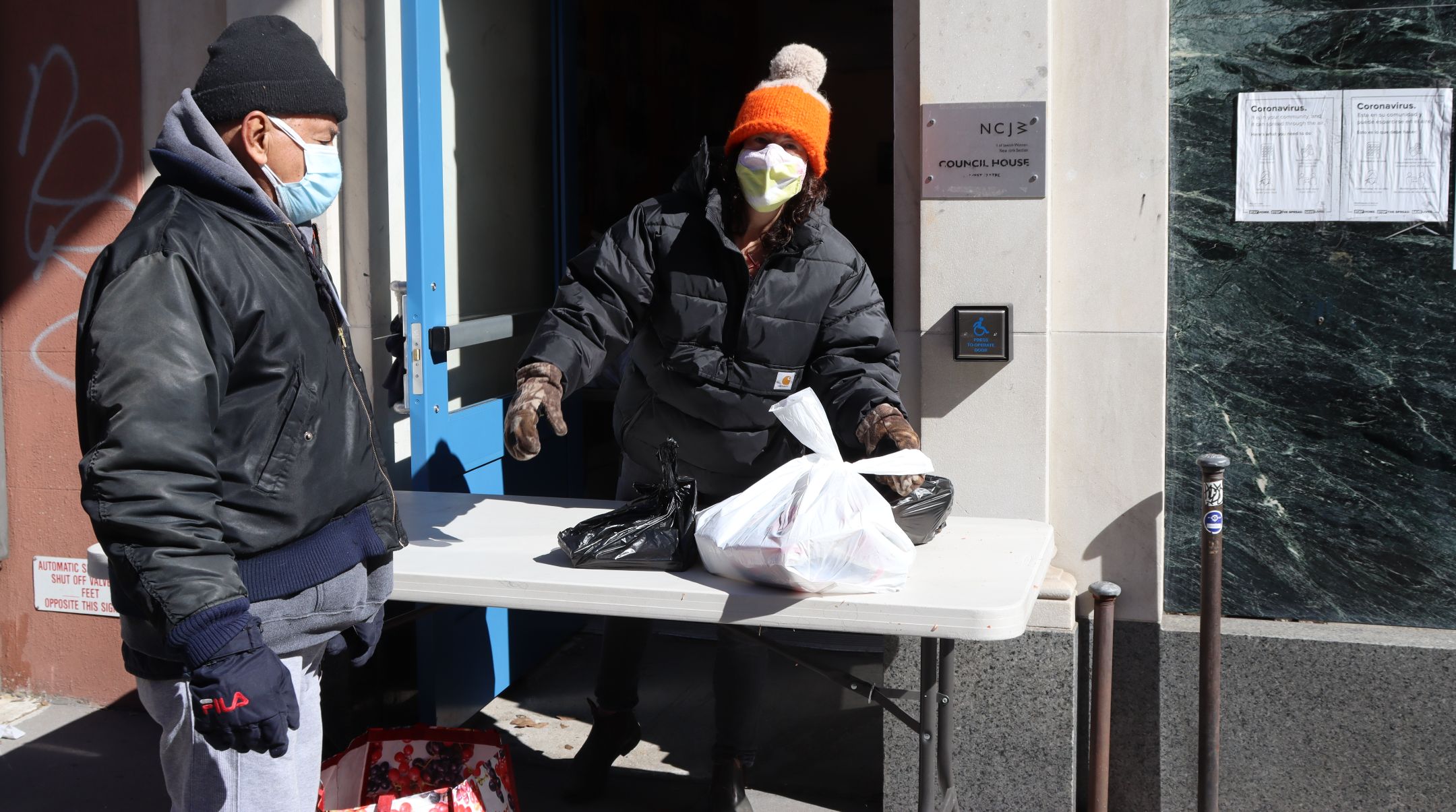
Andrea Kopel, center, the director of NCJW-New York, joins a volunteer in preparing a food delivery at NCJW’s food pantry in New York on March 15, 2021 (Courtesy NCJW-NY)
The pandemic renewed attention to hunger as a national crisis. On the Upper West Side of Manhattan, Andrea Kopel had to figure out how to keep a weekly food pantry going, stripped of its regular volunteers and routines.
Kopel: We have really prided ourselves on really creating a warm and welcoming and dignified experience for our hunger program. This does not feel like that at all.
A college senior year ‘dissipated’ — with a new Jewish community taking its place
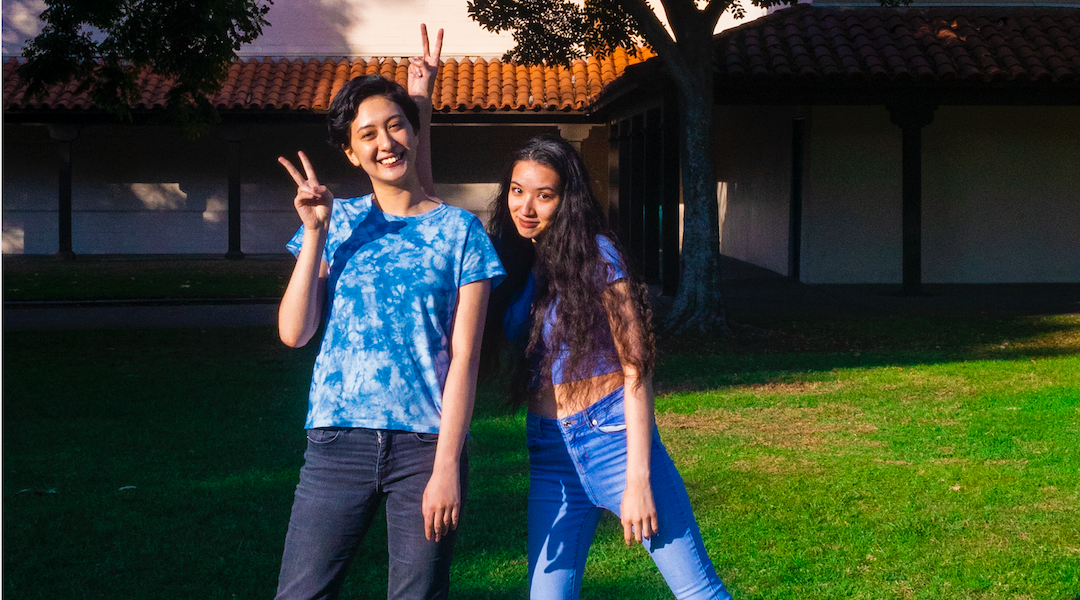
Gen Slosberg, left, and Jenni Rudolph founded Lunar: The Jewish-Asian Film Project during the pandemic. (Courtesy of Lunar)
Gen Slosberg’s in-person classes at the University of California, Berkeley, stopped on short notice in March. She never had another one — or another all-nighter at the library, or boba tea with friends, or any of the other activities that structured her life as an American college student.
Slosberg: Not only did I lose the mundane things that made in person life great, I lost friends and community members. People of my background were lost to hate. We talk about adapting, shifting, changing… I never quite got to process my loss.
A Jewish musician’s new ‘hybrid’ lifestyle could last a lifetime
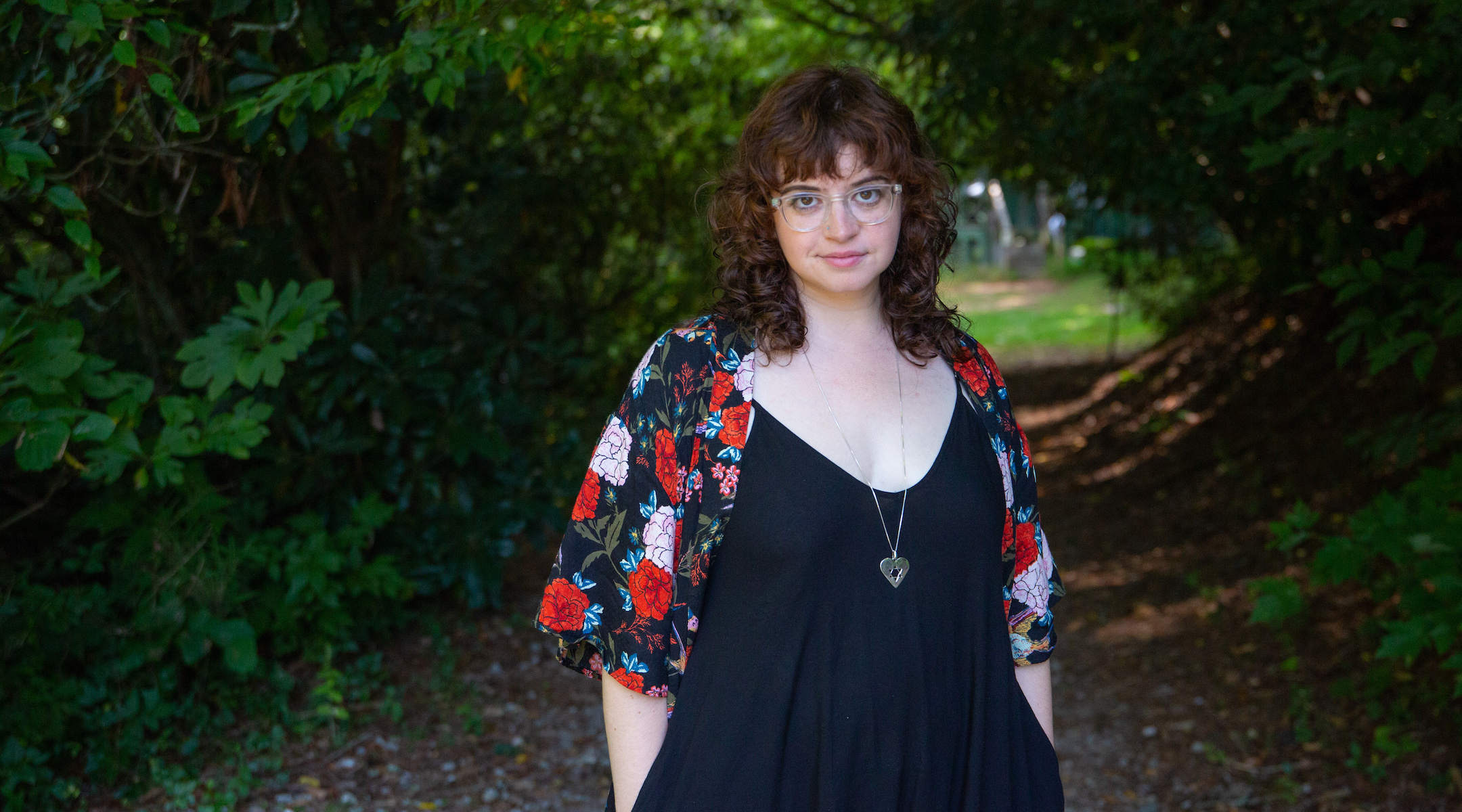
Eliana Light is one of several young Jewish musicians and spiritual leaders moving their work online. (Ori Salzberg)
Like all arts and education gig workers in the Jewish world, Eliana Light saw her carefully planned travel schedule disintegrate in a matter of days in March 2020. But that doesn’t mean she hasn’t been bringing her brand of Jewish children’s music to new audiences this year.
Light: We’ve been able to collaborate and work with each other way more than we would have in a regular world, given that we live across the country from each other.
A museum chief takes a 99% pay cut — and sees “visitors” skyrocket
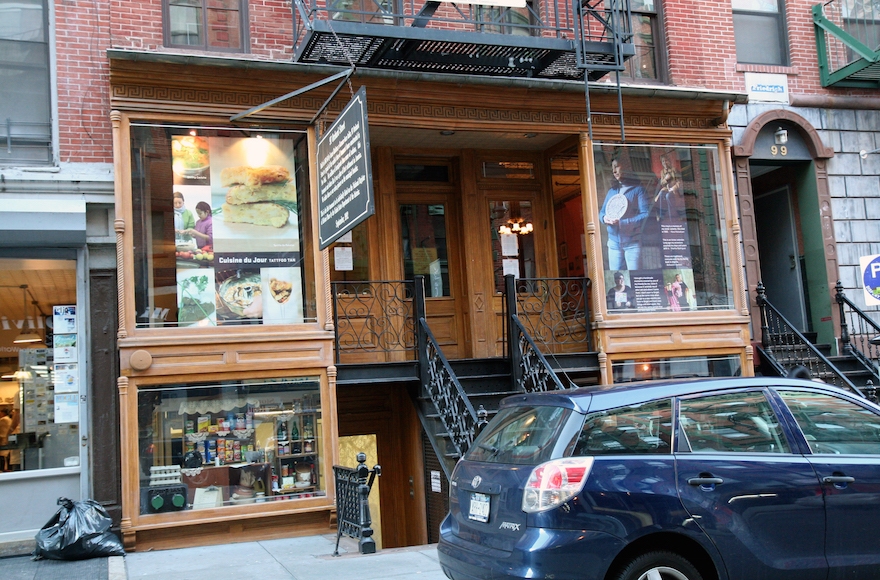
A view of the front of the Tenement Museum. (Wikimedia Commons)
When the Tenement Museum had to close in March, outgoing president Morris Vogel slashed his own salary to just $25 a month. A year later, he’s no longer in charge, but he says the museum’s mission explains its success in drawing visitors online.
Vogel: People come to us to find a deeper and richer version of the American story, a story of perseverance and aspiration.
Teaching Jewish educators Danish tricks when school turned upside down
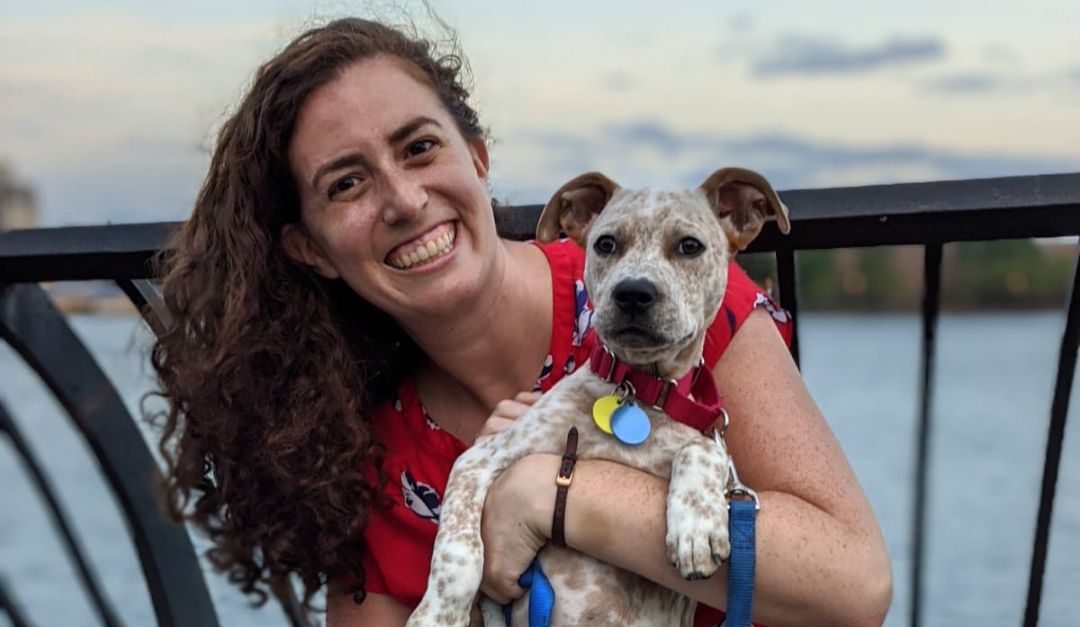
Sasha Kopp, who trains Jewish early childhood teachers, took up dog walking in Manhattan to fill time during the pandemic. Here she poses at Carl Schurz Park in New York City on July 16, 2020. (Carl Vitullo)
In college, Sasha Kopp spent time studying in Copenhagen, where many children attend “forest preschools” that are largely outdoors. That experience came in handy over the last year in her work with the Jewish Education Project.
Kopp: Our teachers hadn’t had experiences of being outside with kids two to five hours a day.
Accelerating love and work
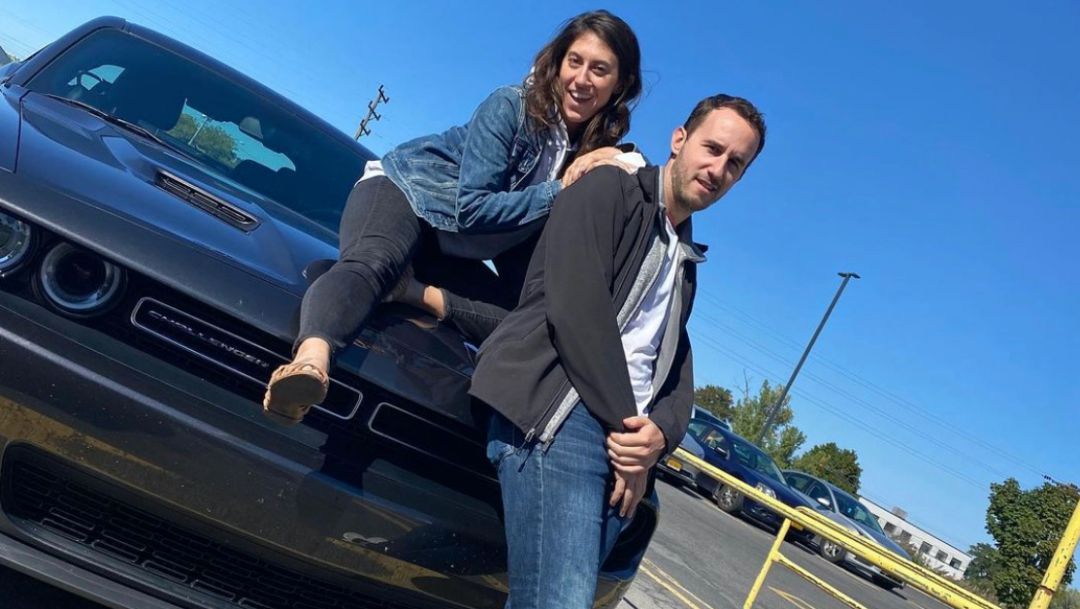
Sofi Hersher and Nate Andorsky pose during a visit to introduce Andorsky to Hersher’s grandmother, with COVID precautions in place, in Syracuse, N.Y., Sept. 21, 2020. (DeAjah DeLee)
With so many nonprofits in distress because of the pandemic, Sofi Hersher’s new communication consultancy had brisk business. The Washington, D.C., executive hired many staff members who were then shaken by seeing the Jan. 6 insurrection play out in their backyard.
Hersher: I had to talk them through that. No one has the emotional resilience that they used to have.
JTA has documented Jewish history in real-time for over a century. Keep our journalism strong by joining us in supporting independent, award-winning reporting.
